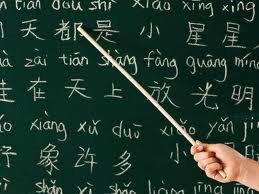Every language is hard and easy to learn at the same time. Chinese tones, while there are only four, (Cantonese traditionally has seven!), make the language challenging to learn. However, on the other hand, Chinese grammar is relatively simpler compared to languages with Latin roots. 
One of the easier aspects of learning Chinese is the fact that there are no conjugations to learn. Incredible, right? For many foreigners, not having to memorize an exhausting list of conjugations and the different tenses helps simplify the process of learning the language. Once you learn a verb in Chinese, that is all there is to it. You will never have to modify the verb as is required in other languages such as French, Spanish, English etc. Whatever pronoun you place before it (I, you, he/she, we and they) will not affect a change in the verb.
For example:
The main verb I will be using is the irregular English verb “to be”, in Chinese: “shi”. Lets play around with the different pronouns and the verb “shì”.
“wǒ shì” means “I am”
nǐ shì = you are
tā shì = he/she is
wǒ men shì = we are
tā men shì = they are
The verb “shì” does not change regardless of the pronoun (I/you/he/she/we/they). Chinese is easy to learn in this aspect, especially when compared to the English language's long list of irregular and regular verb conjugations.
Chinese language study is simple and straightforward to learn in other ways as well.
Time for a small Chinese tutorial!
So, for example, the days of the week and months of the year are numbered off in a logical way in Chinese.
For example, the word for “Monday” in Chinese is literally the word for “week” followed by “the number of the day of the week”. For example:
(xīng qī yī) = week + 1 means Monday;
(xīng qī èr) = week + 2 means Tuesday;
(xīng qī wǔ) = week + 5 then, would signify... Friday.
You can probably figure out how to say the days of the week if I give you the numbers 1 through 6 in Chinese now! The word for “Sunday” in Chinese is the exception though. However, interestingly enough, written as (xīng qī rì), the character for “rì” literally translates to mean “the sun”, similar to its equivalent in English: “Sunday”. Fun fact, right?
Months of the year in Chinese also have a similar logical order to them. The months of the year in Chinese translate to “whichever number month it is in the year”(first, second third etc.), followed by the word for “month” which is “yuè”.
So, the month of January is (yī yuè), literally the first month of the year;
February is (èr yuè), the second month of the year;
Therefore, May, the fifth month of the year is (wǔ yuè). “wǔ” the word for “five” in Chinese.
In this aspect, Chinese is a much more logical and straightforward language than its English counterpart. Therefore, learning Chinese isn't as complicated as it sounds or looks. A lot of Chinese words can be broken down to more basic words and then rather easily figured out. And since the Chinese language is so logical, having a better understanding of Chinese characters and the language will make you better able to understand the Chinese culture, history and its people and their very logical way of thinking and approaches to life.
So don't be intimidated by the Chinese language. Is it challenging? Of course, but impossible? Definitely not! So consider taking Chinese classes NOW. Hutong School can help you find exactly what you're looking for in Chinese classes (flexible private or group classes, during the day, evening, or the weekend as well as intensive classes).
Follow us on Twitter and Facebook if you like this article and are curious about what Chinese classes we can offer you here in Beijing today and Shanghai soon!